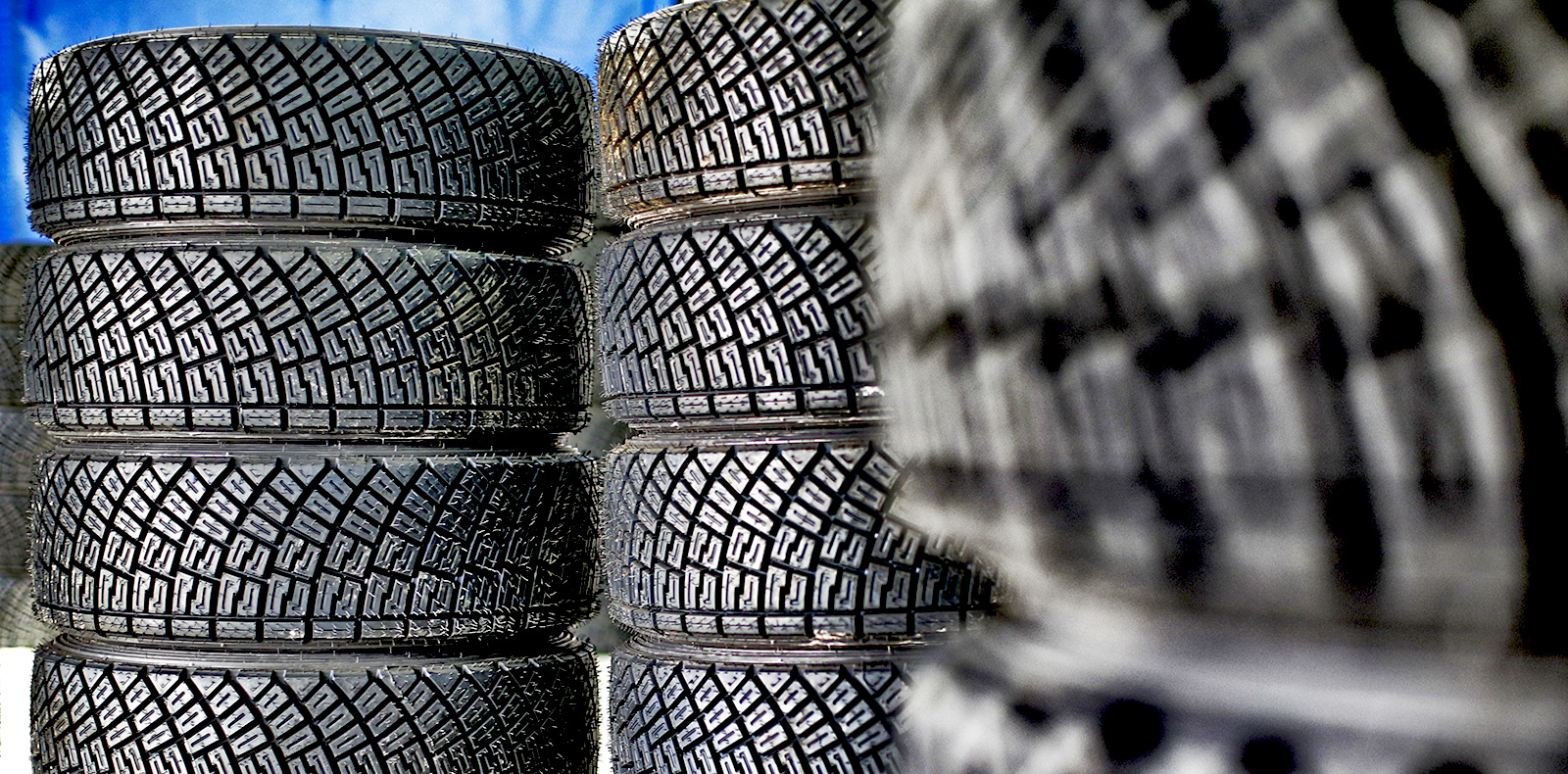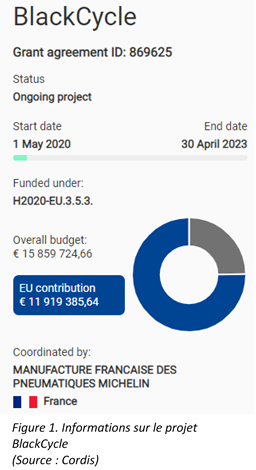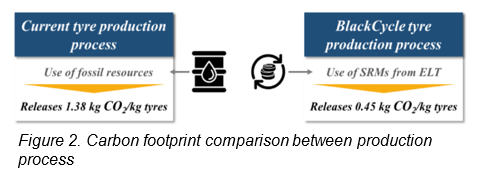
Coordinated by the leading global tyre manufacturer Michelin and uniting 7 industrial partners, 5 Research & Technological Organizations (RTOs) and an innovation cluster into a European consortium in 5 countries, the BlackCycle project aims to enable a massive circular economy of tyres by designing world-first processes to produce new tyres from end-of-life tyres (ELTs).
A Circular Economy of Tyres in Europe as a goal
Officially funded by the EU in May 2020, the BlackCycle partners are pleased to announce the launch of the project today. The BlackCycle project involves 13 organisations1 in a unique European public-private partnership that will demonstrate the technical, environmental, and economic viability of world-first circular processes. The consortium will develop specific solutions to produce sustainable raw materials for tyres: ELT collection and feedstock selection, pyrolysis2 optimisation, oil refining and valorisation, furnace process optimisation, and sustainable tyre performance assessment. As early as 5-6 years after the project, close to 1 out of every 2 European ELTs will be incorporated into the only virtuous cycle of this magnitude amongst all industrial sectors for the recovery of end of life products.
Funded by the Horizon 2020 program, BlackCycle benefits from an overall budget of about 16 M€ with an allocated European funding of about 12M€ (75% of project costs, see Fig. 1). About 35% of the project funding is allocated to SMEs, 15% to RTOs and 34% corresponds to the personnel costs.
The consortium covers 5 European countries: France, Spain, Germany, Greece, and Switzerland and includes 7 industrial partners, 5 RTOs and an innovation cluster. Coordinated by Michelin, the consortium has designed an effective governance system involving a steering committee, a cluster synergies board, and a technical support committee.

Context
1.6 billion new tyres are sold worldwide each year, representing more than 26 million tons, and just as many fall into the category of end-of-life tyres (ELT) providing a large and partially tapped potential for material recovery. Today’s ELT treatment processes are not circular and do not result in many raw materials that can be reused in the tyre industry. Furthermore, as there is not enough solution to valorise materials from ELT in the EU, more than half of EU end-of-life and second-hand tyres are exported to far-off countries.
A Circular Economy of Tyres in Europe as a goal
The BlackCycle project aims at creating, developing, and optimising a full value chain form ELT feedstock to Secondary Raw Materials (SRMs), with no waste of resources in any part of the chain and a specific attention for the environmental impact. These SRMs will be used to develop new ranges of passenger car and truck tyres, which will be sold commercially in European and global markets.
As a result, the BlackCycle value chain as a lower carbon footprint (see Figure 2), emitting 0.93 kg/CO2/kg tyres less and a lower using of fossil resources, using 0.89 kg fossil/kg ELT less.

By offering an economically and environmentally viable alternative, BlackCycle will reduce the export of end of life tyres. By relocating end-of-life tyre management and transformation within the EU, BlackCycle is expected to create sustainable jobs inside the EU.
Download Report
BlackCycle: A major European project for recycling end-of-life tyres into new tyres (PDF)
Source
Michelin, press release, 2020-09-03.
Supplier
Share
Renewable Carbon News – Daily Newsletter
Subscribe to our daily email newsletter – the world's leading newsletter on renewable materials and chemicals









